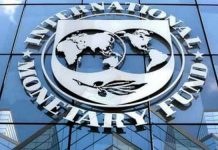Nearly 850,000 Ghanaians were put into poverty in 2022 as inflation reached levels not seen since the early turn of the century, the latest World Bank Economic Update has revealed.
This worsened food insecurity.
According to the World Bank, high inflation in Ghana in 2022 led to catastrophic effects on food security and poverty.
It stated that rising inflation disproportionately affected the less well-off, who allocate a larger share of their budget to food.
Food insecurity also significantly increased, with a quarter of the population deemed food insecure by the end of 2022.
The report explained that local food production was heavily impacted by the increase in fertilizer prices
“Most of the fertilizer used in the country is imported, Farmers are susceptible to global fertilizer price fluctuations. Households interviewed in the Food Security and Nutrition Monitoring System noted that fertilizer prices were a problem they faced during the planting season”.
It continued that a depreciating cedi contributed to inflation and drove up prices of imported goods and services which passed through to domestic prices.
The report also said food inflation outpaced nonfood inflation, adding, “Since the poorest devote a larger share of their budgets to food and food is not easily substitutable, especially when at subsistence levels, this leaves them more vulnerable to rising prices”.
Poor more exposed to inflationary shocks
The report also said the poor are more exposed to inflationary shocks.
“The poor devote a larger share of their incomes to consumption than the non-poor. The poor are less likely to rely on income that is indexed to inflation than the rich. For example, the minimum wage in Ghana increased by just 10% when inflation between January 2022 and Jan 2023 was over 50%”, it mentioned.
It added that inflation in Ghana has been mainly driven by high food and energy prices, leading to increased poverty
Source: Business Analyst

























